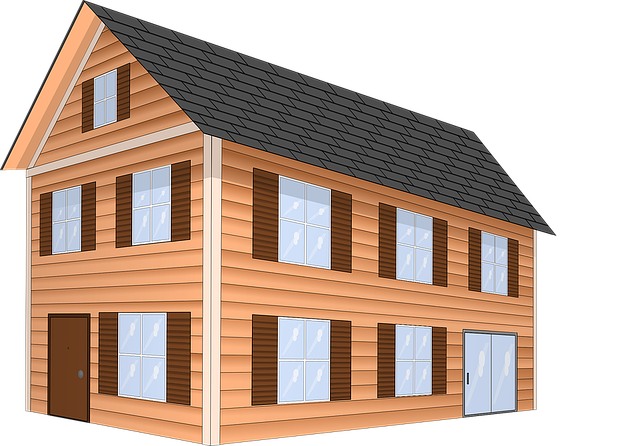DIY projects can enhance home value but are at risk of costly mistakes. Common issues include exceeding budgets (70% of projects go over plan), legal problems from skipped permits, and financial losses due to measurement errors, especially with flooring and cabinetry. To avoid these home improvement mistakes and DIY renovation errors, plan meticulously: research local building codes, obtain permits upfront, vet contractors thoroughly, double-check measurements for accurate material ordering, and create a comprehensive budget accounting for materials, labor, and potential unforeseen expenses.
“Avoid costly DIY disasters! Discover the hidden traps that could damage your home’s value. From budget overruns and permit neglect to oversights during renovation, this guide sheds light on common mistakes. Learn how legal pitfalls, unlicensed contractors, and measurement errors can lead to financial losses. Master home improvement by understanding these pitfalls, ensuring a successful project without compromising your investment.”
Budget Overrun Mistakes: Staying Within Financial Limits
DIY projects can enhance your home’s value, but they also come with potential pitfalls that could damage it—and your wallet. One of the most common and costly mistakes homeowners make is exceeding their budget. According to recent studies, nearly 70% of DIY projects go over the planned expense, often due to unforeseen challenges or miscalculations. Skipping essential permits can lead to legal issues and hefty fines, adding unexpected costs to your project.
Before starting any home improvement or renovation, meticulous planning is crucial. This includes accurate measurements, realistic material estimates, and a detailed budget. Ignoring these steps frequently results in costly errors like buying too much (or too little) material or hiring unlicensed contractors at inflated rates. Measurement mistakes, especially with flooring or cabinetry, can lead to wasteful purchases and a final product that doesn’t fit properly.
– Understanding the financial implications of DIY projects
When tackling DIY projects around your home, it’s crucial to understand the financial implications of your actions – or inactions. While the allure of do-it-yourself (DIY) reno is cost savings, poor planning can lead to significant budget overruns and even damage your home’s resale value. Many a homeowner has bitten off more than they can chew, resulting in common renovation oversights that leave them with unexpected bills and subpar results.
One of the most detrimental DIY project planning errors is not accounting for necessary permits. Skipping permits can lead to legal issues and costly fines. Similarly, hiring unlicensed contractors or taking on complex tasks without proper skillsets can result in poor workmanship and safety hazards. Measurement mistakes in DIY projects – especially when it comes to materials like flooring or cabinets – can also contribute to waste, budget blowouts, and a less-than-ideal end product.
– Common causes of budget overruns and how to avoid them
DIY projects can be rewarding, but they’re also notorious for turning into costly mistakes. Common causes of budget overruns include skipping essential permits, which can lead to hefty fines and delays; hiring unlicensed contractors who may not complete the job to code or charge hidden fees; and making measurement mistakes that result in orders for the wrong materials. To avoid these pitfalls, meticulous planning is key. Research your local building codes and obtain necessary permits upfront. Thoroughly vet any hired help, including checking references and verifying licenses. And always double-check measurements to ensure accurate material ordering. Preventing these DIY renovation errors can save you both time and money in the long run, ensuring your home improvement project stays on track and within budget.
– Tips for accurate cost estimation and setting a realistic budget
Accurate cost estimation and realistic budgeting are essential aspects of any home improvement project. One of the most common DIY renovation errors is underestimating the financial commitment required. This often stems from skipping important steps like detailed planning and research. Before beginning, create a comprehensive plan that accounts for materials, labor, and potential unforeseen expenses. Utilize online resources and consult with professionals to get realistic quotes for your project.
Additionally, avoid falling into common renovation oversights by understanding local building codes and obtaining necessary permits. Skipping these steps not only leads to budget overrun mistakes but can also result in legal issues and damage your home’s value. Ensure you’re aware of any licensing requirements when hiring contractors, and double-check that measurements are accurate to avoid costly errors during the execution phase of your project.
While DIY projects can be rewarding and cost-effective, it’s crucial to be aware of potential pitfalls like budget overruns, improper permit avoidance, and hiring unlicensed contractors. Skipping essential steps like thorough planning, accurate measurements, and seeking professional advice can lead to significant home improvement mistakes that may ultimately damage your property’s value. To avoid these common renovation oversights, prioritize comprehensive research, meticulous record-keeping, and adherence to local regulations. Effective project management and due diligence will ensure your DIY efforts enhance, not diminish, your home’s long-term worth.
